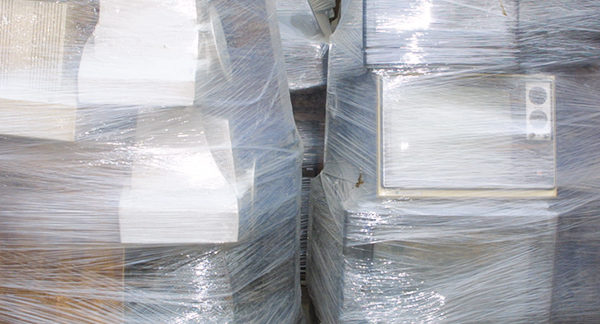Gold Coast’s upgraded operation improves efficiency and precision.
The new, state-of-the-art recyclable material sorting system uses screens and optical sensor air technology to separate materials. Additional updated systems prepare the materials for transport.
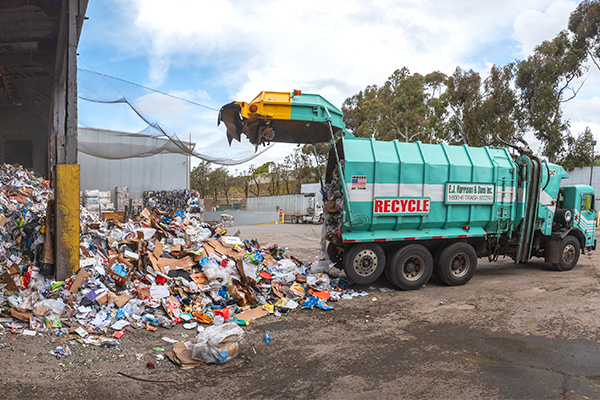
1. Bulk recycling material is brought in to Gold Coast Recycling on trucks and gathered for loading into the hopper.
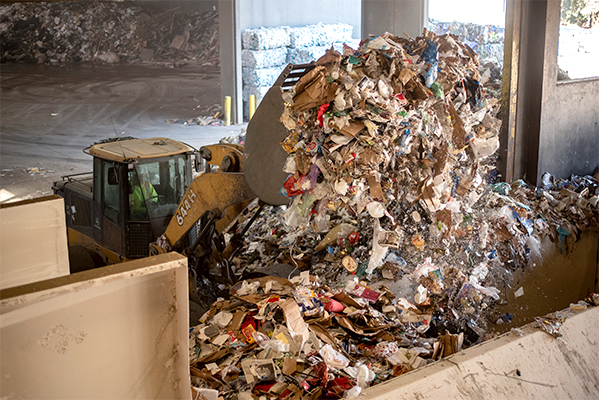
2. Loaders dump the unsorted recycling material into the hopper for initial sorting and inspection.
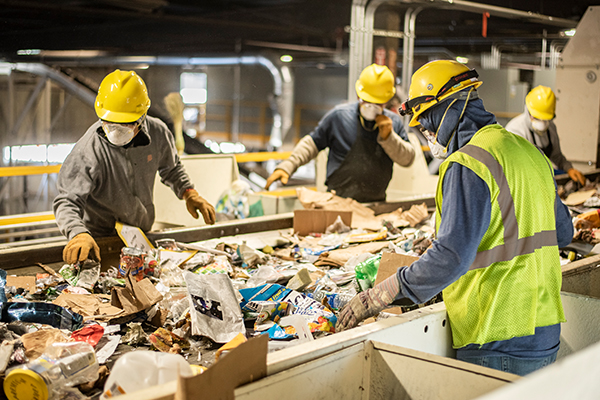
3. First-line sorters clear out single-use plastic bags, large metal objects, trash and any dangerous items, to prep the lines for the first round of rollers.
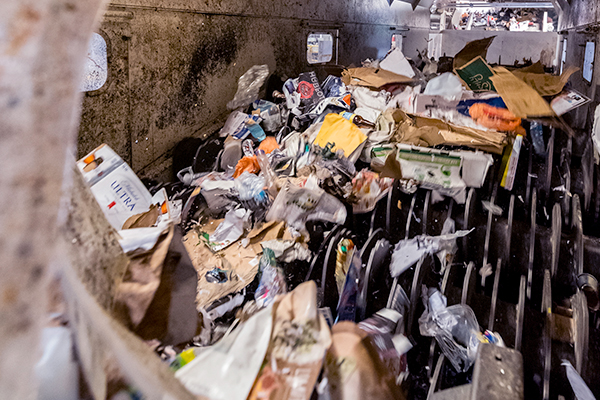
4. Rollers separate cardboard from the other recyclables, which are then sent to their respective sections of the recycling plant for further processing.
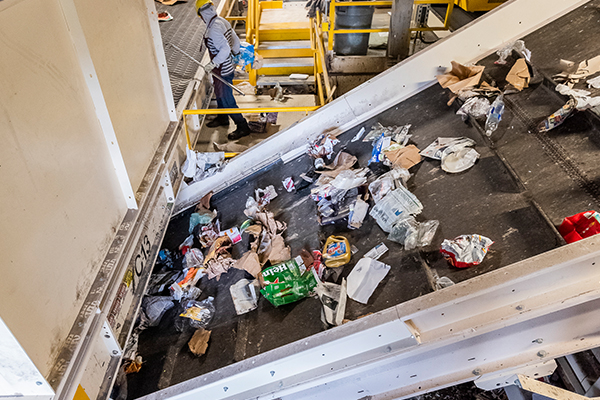
5. Plastics, paper, aluminum, tin cans and small cardboard recyclables are further separated as they go through the process.
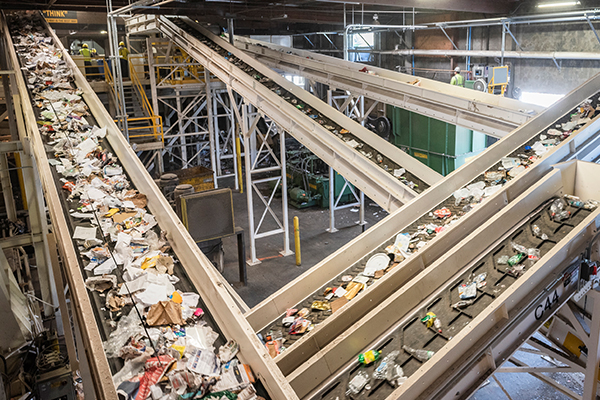
6. Gold Coast’s improved service is largely owed to its new sorting facility, retrofitted to accommodate the growing need for purer recyclables.
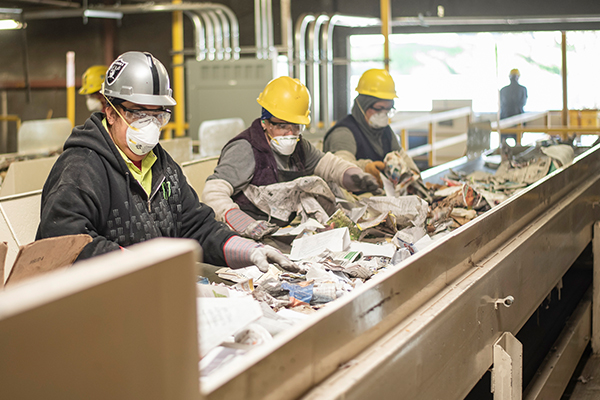
7. For the final inspection, paper line sorters further remove any missed plastics and undesirable items.
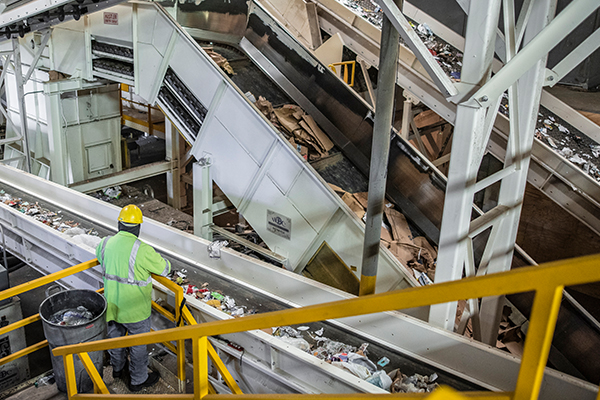
8. Conveyors take the different recyclables to final stages of processing in the plant.
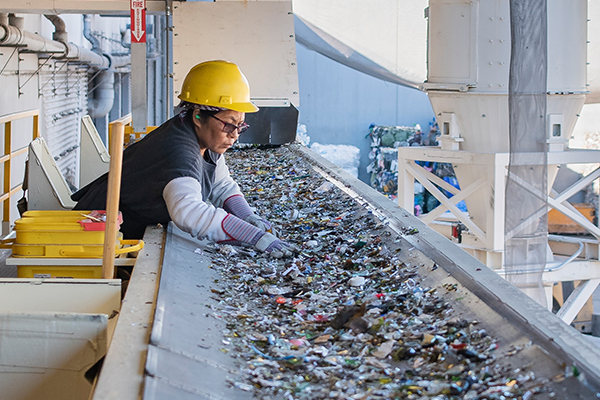
9. Crushed glass for resale is looked over a final time, for anything amiss.
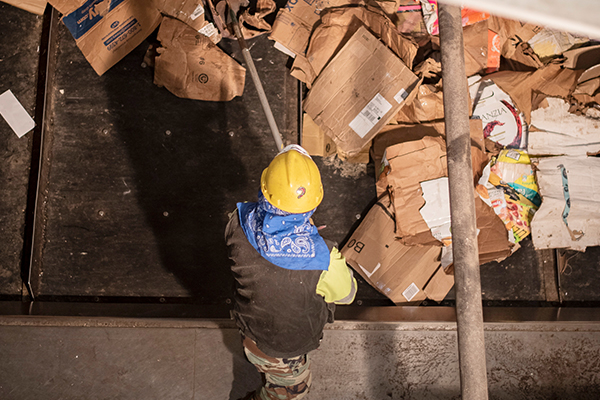
10. A worker uses a specially designed tool to clear out any noncardboard recyclables along bailing conveyors.
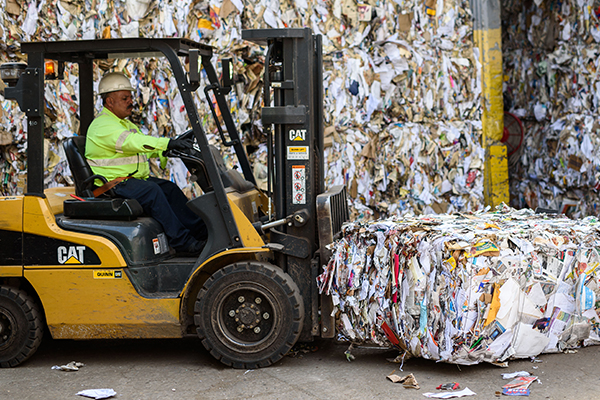
11. Workers take sorted recyclables and condense the material into large bales.
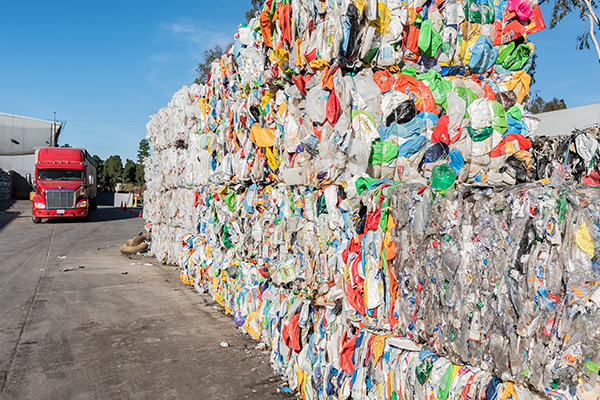
12. The huge bales of specially sorted plastics, paper and aluminum recyclables are stacked for loading onto Gold Coast transport trucks.
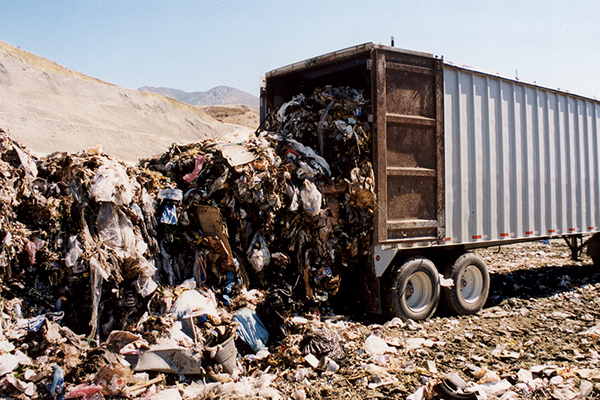
13. Nonrecyclable materials are taken to local landfills for proper disposal.
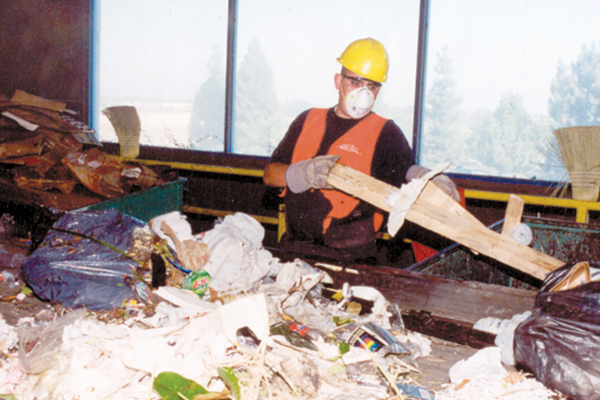
Construction, Demolition
and Roll-off Recycling
Innovative programs featured at the facility
Recyclable materials are picked off the commercial picking line from construction and demolition loads. The heaviest roll-off materials are sorted on the Gold Coast commercial picking line. All construction and demolition material is recycled and meets all diversion requirements for building permits required by some cities and the County of Ventura. Certified recycling numbers are given to the contractor. For further information, call 805-642-9236.
E-waste
Electronic waste – commonly called e-waste – is loaded for international markets.
E-waste includes computers and computer monitors, printers, televisions, stereos, DVD players and VCRs, cell phones and small kitchen appliances. (No smoke detectors.)
